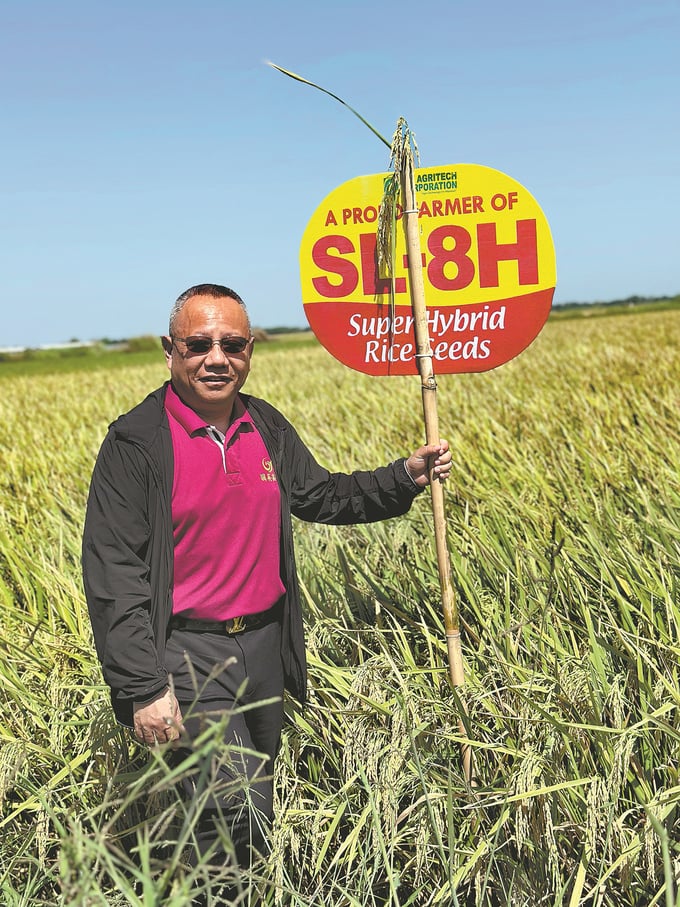May 19, 2025 | 19:49 GMT +7
May 19, 2025 | 19:49 GMT +7
Hotline: 0913.378.918
May 19, 2025 | 19:49 GMT +7
Hotline: 0913.378.918

Honglian hybrid rice, which is resistant to diseases and pests and can tolerate high temperatures, grows in the Philippines.
"Malaysia has expressed the pressing need to introduce Chinese hybrid rice seeds and planting techniques to alleviate local food shortages," Ding Junping, the head of Wuhan Guoying Seed Corporation, said at a national agricultural enterprises forum in Wuhan, the capital of Hubei province, early this month.
He said Honglian hybrid rice has gained recognition in South Asian and Southeast Asian countries such as Pakistan, Indonesia, the Philippines, Bangladesh and Vietnam.
Honglian hybrid rice was developed in the 1970s by Zhu Yingguo, who is an academician of the Chinese Academy of Engineering, dean of the life sciences institute at Wuhan University and the company's chief scientist.
It is of excellent quality, resistant to diseases and pests and can tolerate high temperatures, all useful characteristics in BRI countries.
"Last year, trial plantings of various strains developed by the company, such as Honglian hybrid rice and the water-saving, drought-resistant rice, were carried out in Sarawak and Sabah in Malaysia," Ding said.
"The yield reached 11.08 metric tons of grain per hectare, representing an increase of more than 120 percent compared to local varieties and garnering high recognition from the local governments, agricultural authorities and farming communities."
A delegation from Sarawak's agricultural department visited the company in January for technological exchanges and business negotiations.
Ding said that a cooperation agreement has been reached to expand the Malaysian market. The company plans to export 300 to 500 tons of rice seeds this year and 1,000 tons next year. The export volume is scheduled to reach 3,000 tons in three years, earning more than $10 million.
In the Philippines, the export volume of hybrid rice seeds has reached 10,000 tons a year, generating earnings of $30 million, he added.
(Chinadaily)

(VAN) Fourth most important food crop in peril as Latin America and Caribbean suffer from slow-onset climate disaster.

(VAN) Shifting market dynamics and the noise around new legislation has propelled Trouw Nutrition’s research around early life nutrition in poultry. Today, it continues to be a key area of research.

(VAN) India is concerned about its food security and the livelihoods of its farmers if more US food imports are allowed.

(VAN) FAO's Director-General emphasises the need to work together to transform agrifood systems.

(VAN) Europe is facing its worst outbreak of foot-and-mouth since the start of the century.

(VAN) The central authorities, in early April, released a 10-year plan for rural vitalization.

(VAN) Viterra marked a significant milestone in its carbon measurement program in Argentina, called Ígaris, reaching 1 million soybean hectares measured.